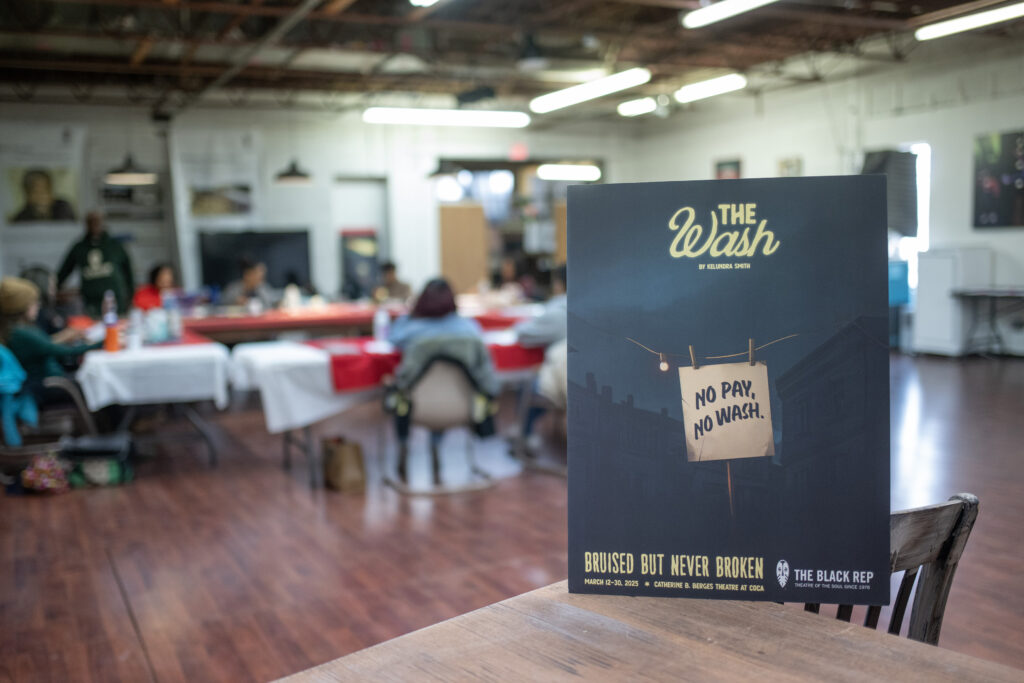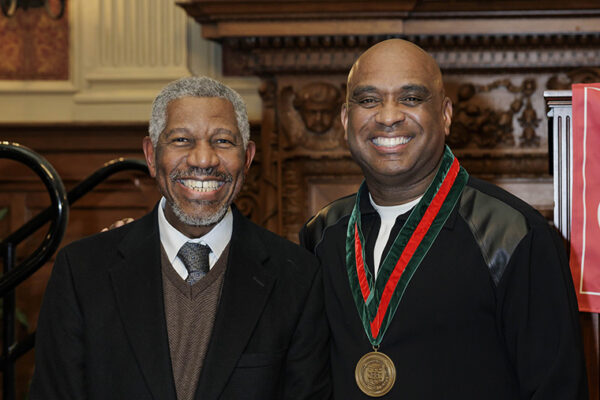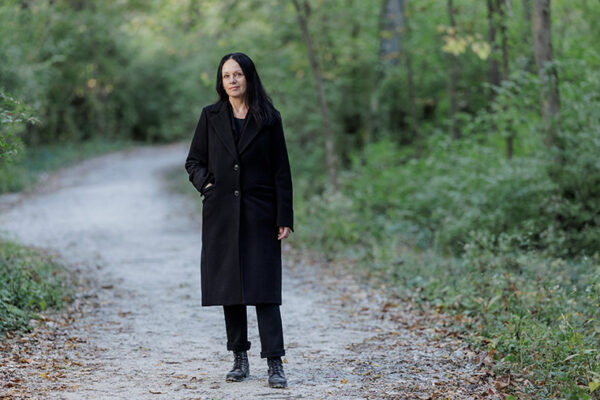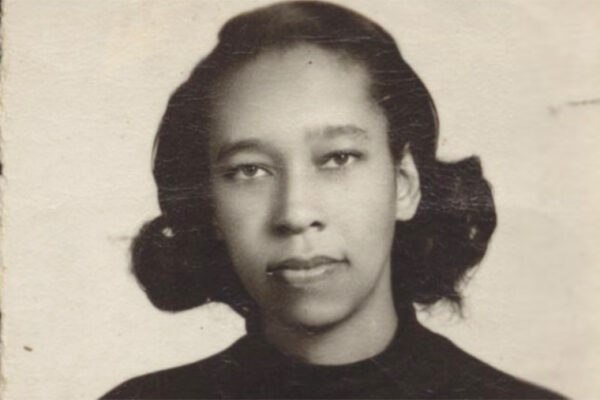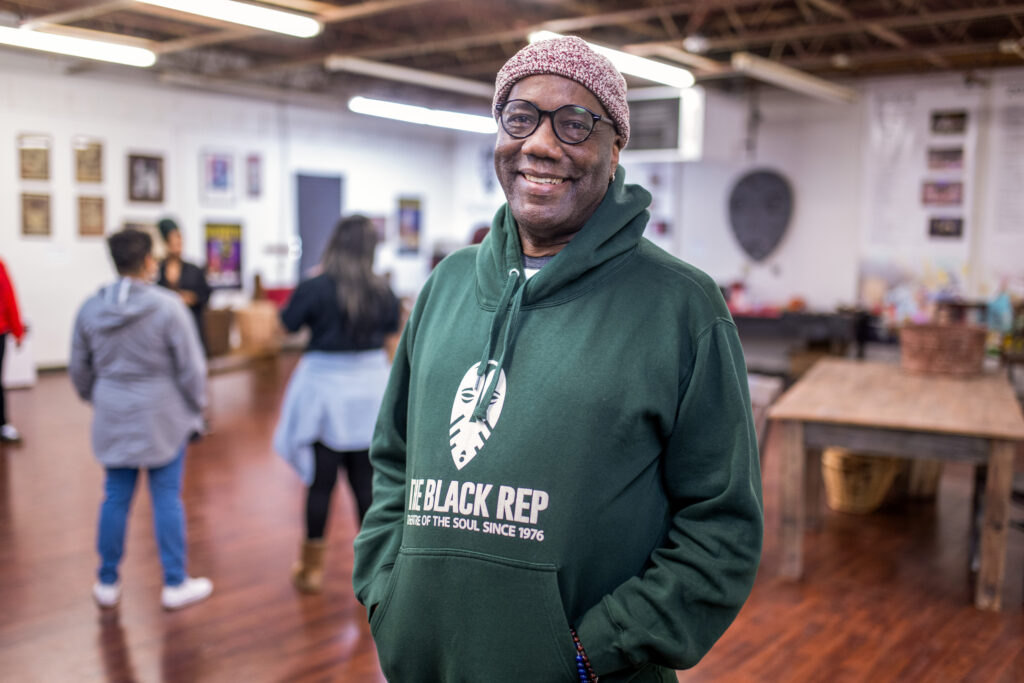
“Nobody writes plays just for themselves,” says Ron Himes, BS ’78, wearing a slight smile. “You want to get the work in front of an audience. You want to get it in front of a community that needs to hear that story.”
Himes, the Henry E. Hampton, Jr. Artist-in-Residence in Arts & Sciences, is producing director for The Black Rep, one of the nation’s oldest and most celebrated regional companies, which he founded in 1976 as a WashU undergraduate. Over the years, Himes has worked with scores of playwrights to stage hundreds of shows — including dozens of world premieres.
This spring, Himes and The Black Rep are presenting two new plays by a pair of celebrated dramatists. Melda Beaty’s Coconut Cake, currently running in WashU’s A.E. Hotchner Studio Theatre, profiles a group of older Chicago men who meet weekly at a South Side McDonald’s. Kelundra Smith’s The Wash, which opens at COCA March 12, is set amidst the 1881 Atlanta Washerwomen Strike, one of the largest and most successful Black labor actions of the Reconstruction Era.
There are a lot of paths from page to stage, says Himes, who also received an honorary doctor of arts from WashU in 1998. But whether a work is commissioned by the company or produced in partnership with other theaters or arrives in an email from out of the blue, the mission is the same.
“The script belongs to the playwright,” Himes says. “It’s their story. It’s their idea. We’re giving them a platform and a place to develop the work.”
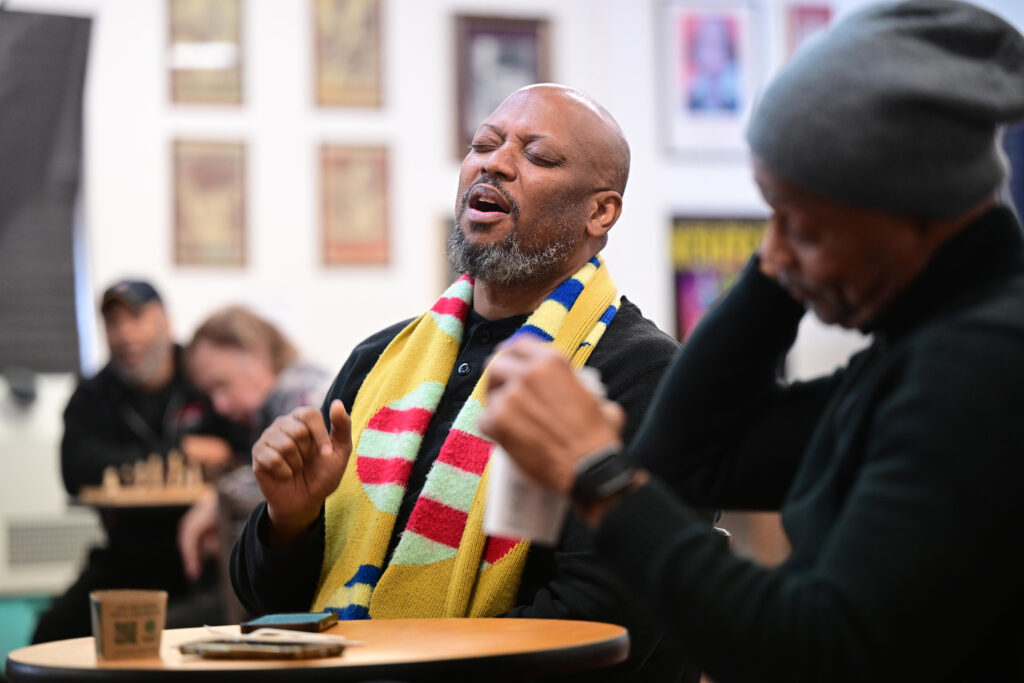
‘Sit around and lie’
Beaty, a Chicago native, completed her first draft of Coconut Cake in 2017. “A lot of it came from the men in my family,” she says. “My grandfather, my uncles … It’s how they talk. It’s how they talk about other people, how they talk about women. It’s how they talk about politics, their neighborhoods and themselves.”
She recalls a visit with her grandfather, a retired steel mill worker who lived in nearby Gary, Indiana.
“My mom asked, ‘What are you doing with yourself these days?’” Beaty remembers. “He casually said, ‘Oh, you know. The fellows go down to McDonald’s. Sit around. Talk. Drink coffee.’ And from the other room, his wife yelled, ‘They don’t do nothing but sit around and lie!’”
And there it was. The spark. Research followed: weeks and then months of scouting restaurants, chatting with customers, listening to stories, jokes, advice. “That’s the part of writing I enjoy the most,” Beaty says. “It’s like ethnography. I try to make it as true as I can.”
In some ways the script came fast, during a furious month at Beaty’s dining room table. But theater is a collaborative art. Early readings brought revisions. A line might not quite land. A laugh might come too soon or too late. A skillful performer might add fresh insight.
In 2021, at the height of COVID-19 lockdowns, Eileen Morris, artistic director of the Ensemble Theater in Houston, who had directed Beaty’s first play, arranged a public reading over Zoom. Veteran actor and playwright Ted Lange, best-known as Isaac on The Love Boat, played Marty. Himes played Eddie, a dapper, womanizing contractor whose marital problems drive much of the conversation.
“It was very funny and very poignant,” Himes says. “The characters were well drawn. Melda really captures their voices.”
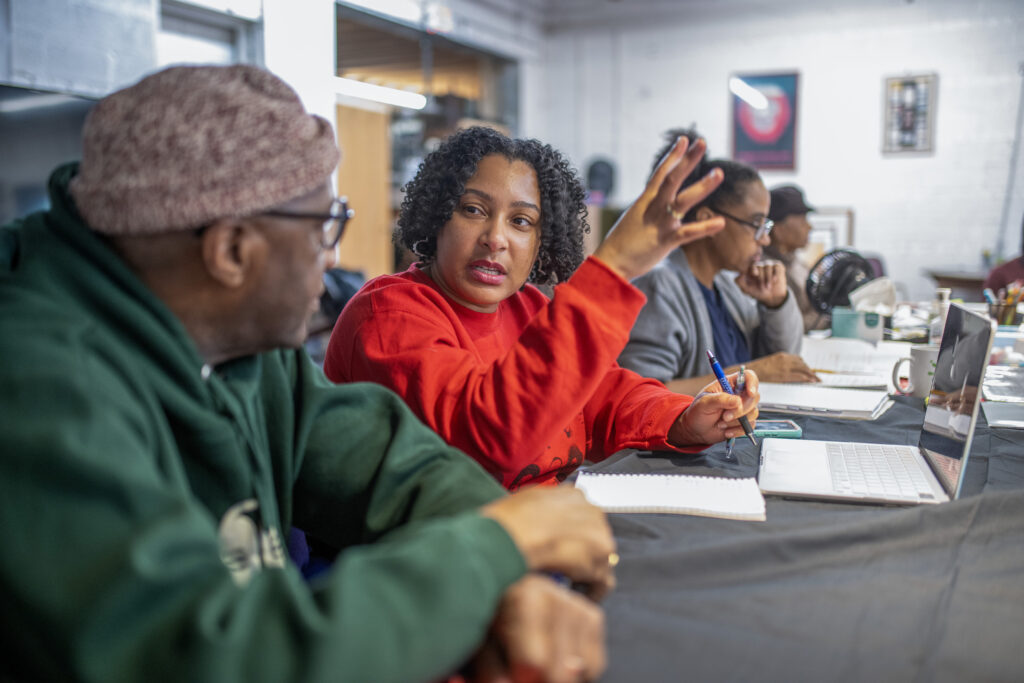
A story that won’t let go
Smith, a veteran journalist and theater critic, first learned of the Atlanta Washerwomen Strike — in which roughly 3,000 women demanded higher wages and greater autonomy in setting rates — while covering the 2017 opening of the National Museum of African American History and Culture in Washington, D.C.
“I’m born and raised in Georgia,” Smith says. “In eighth grade, every Georgia student takes what we used to call Georgia history. We never learned about this.” Sometimes, she adds, “a story won’t let you go.”
A friend at the Atlanta History Center directed Smith to contemporaneous news accounts and to the monograph To ‘Joy My Freedom (1998) by Princeton history professor Tera W. Hunter. “I was amazed,” Smith says. “It made international news. An Indianapolis paper wrote that Black women had ‘waged a war against soap!’
“When I can find the humor in something,” she adds with a laugh, “I can write about it.”
In the early weeks of the COVID-19 pandemic, Smith recruited local actors for an informal Zoom reading. In 2022, a sold-out reading with play development specialists Hush Harbor Lab sparked interest from two Atlanta companies. One of those, Synchronicity Theater, is a core member of the National New Play Network and submitted The Wash for the network’s Rolling World Premiere program.
“The early drafts probably read more like journalism,” Smith says. But as the piece has evolved, “it’s become much more character-driven. If you can make people care about who someone is, you can make them care about what they do and what happens to them.”
“This story is engaging but also very timely,” Himes adds. “It’s about who gets to be recognized, who gets to be a citizen and who gets to be paid for their work.”
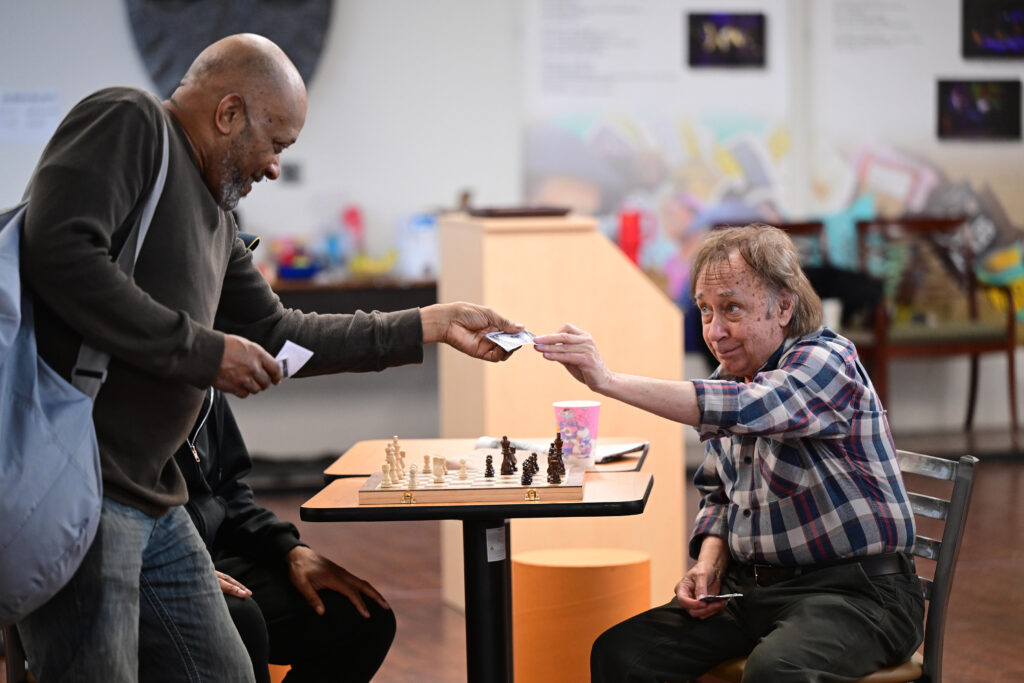
Launching pad
Like Synchronicity, The Black Rep is a core member of the National New Play Network. Rolling World Premieres, the group’s signature initiative, enable companies to share resources while staging previously unproduced works. But unlike, say, a traveling Broadway show, these productions remain fundamentally distinct, with different casts and different crews.
That model, launched in 2004, has since been adopted (with the network’s blessing) by other organizations, including the International Black Theatre Festival. In 2022, Coconut Cake won the festival’s Sylvia Sprinkle-Hamlin Award, which facilitated rolling premieres with Westcoast Black Theatre Troupe in Sarasota, Florida; NC Black Repertory in Winston-Salem, North Carolina; and Hattiloo Theatre in Memphis, Tennessee. After its St. Louis run, Coconut Cake will return to Houston’s Ensemble Theatre.
Debuting a new play is always an accomplishment. “It’s great for the playwright. That first production is a launching pad.”
Ron Himes
Meanwhile, Synchronicity joined with Impact Theatre to stage The Wash in Atlanta. Following The Black Rep’s premiere will be another co-production, by Prop Thtr and Perceptions Theatre in Chicago. Additional runs are slated for Boston, New York and Atlanta.
Debuting a new play is always an accomplishment. But Smith notes that, for young playwrights especially, securing that second or third or fourth production can be a challenge. Having productions lined up at multiple professional theaters, she says, “helps to bridge the gap.”
“It’s great for the playwright,” Himes agrees. “That first production is a launching pad. You see it up on its feet. Now you can work on it some more. You can do a fresh draft or a complete rewrite. You can take it in whatever direction it might need to go.”
Himes recalls a conversation with Leslie Lee, the late Obie Award–winning playwright, who staged several premieres with The Black Rep.
“He said, ‘I love working here because you let me continue to develop my work,’” Himes remembers with a laugh. “’You’re not trying to rewrite my play.’”
